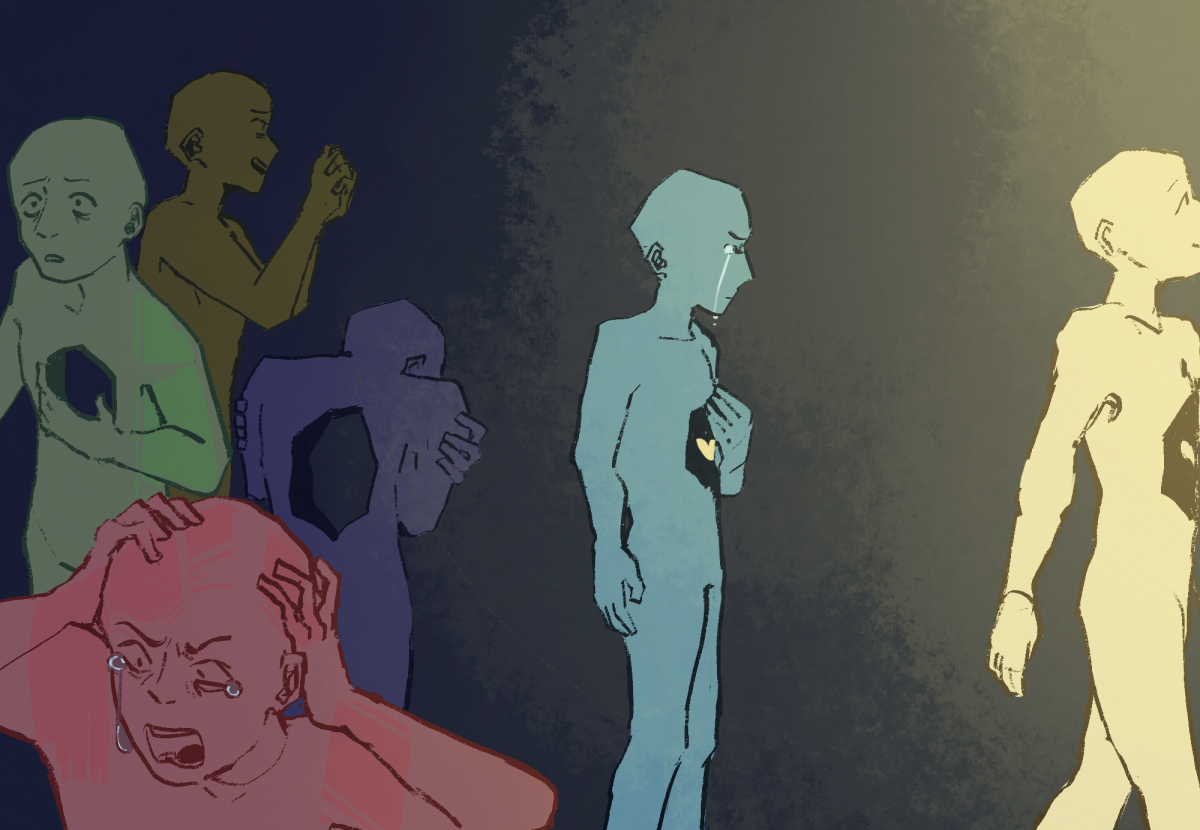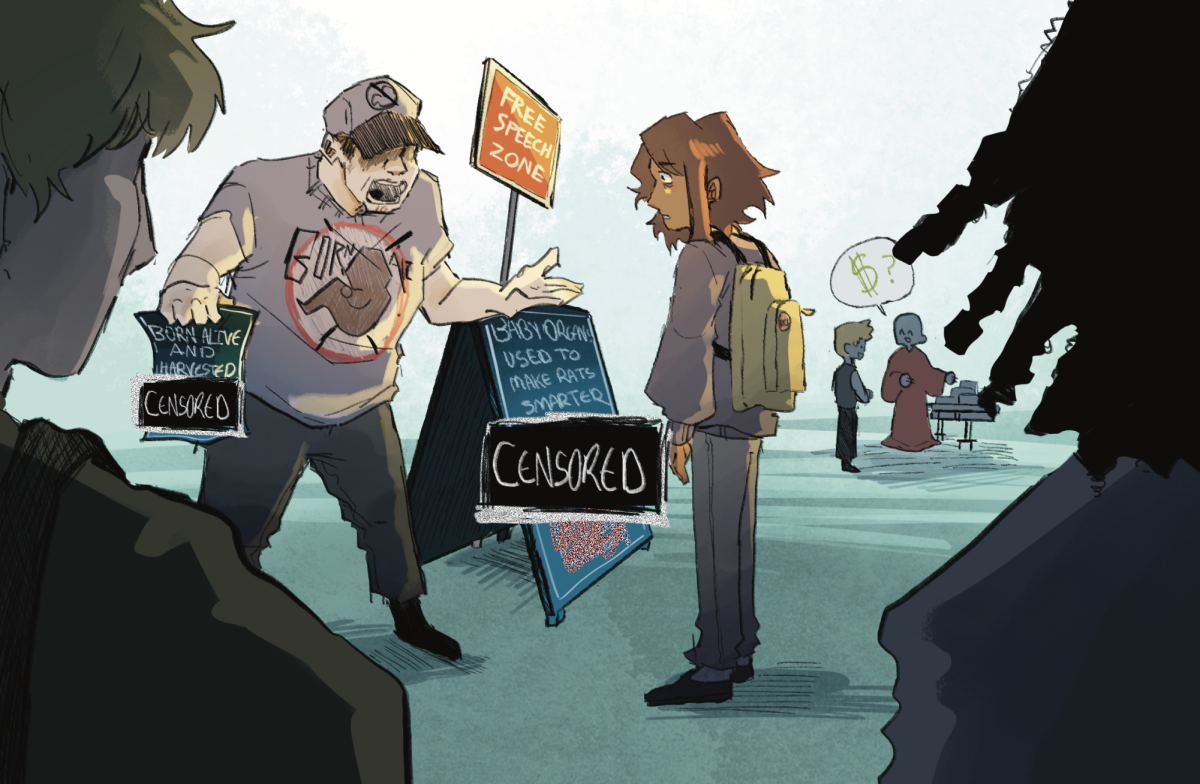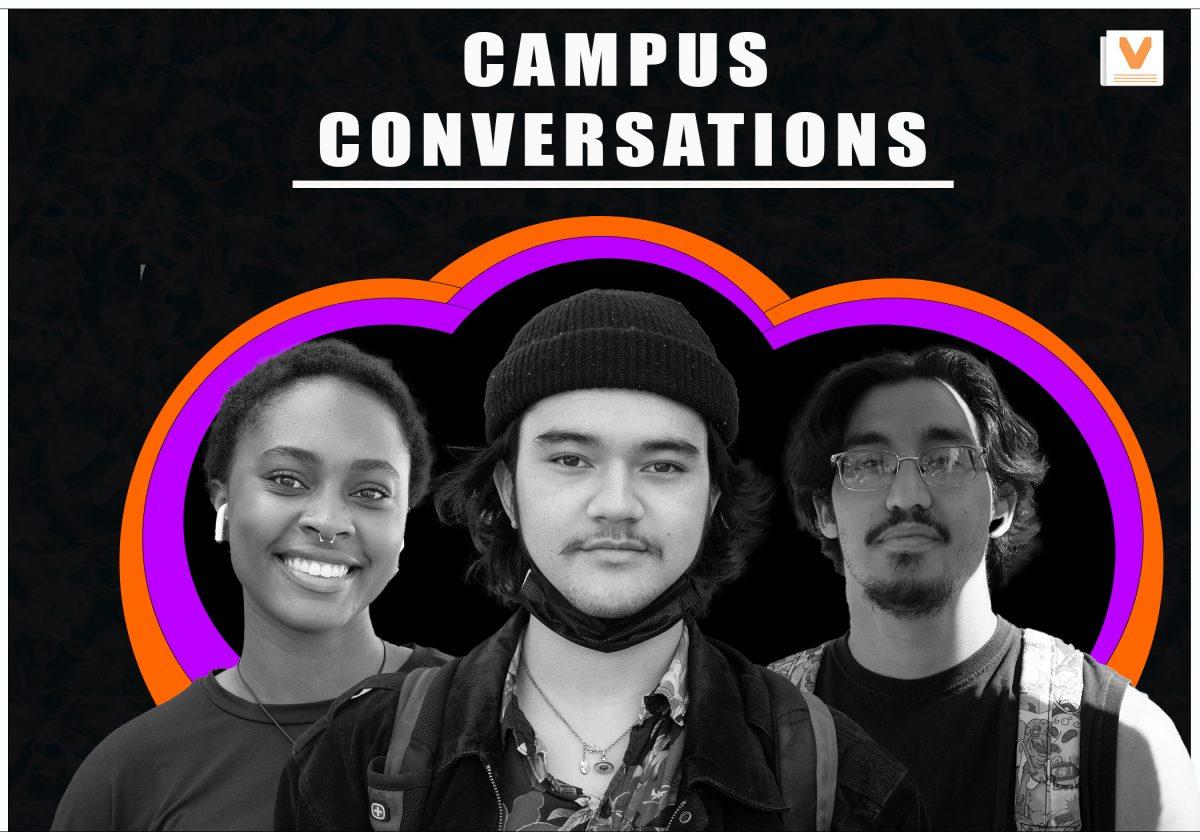A flyer hangs in nearly every room of Riverside City College reading “Mental Health Resources Available” call (951) 222-8151 for mental health, wellness and crisis situations, but for the amount of paper used to print these flyers, how often do students really call the number?
These services train us to believe that in order to overcome loss, we must first work through the five stages of grief.
For students who have dealt with loss, are the five stages of grief talked about more than they are experienced?
The five stages of grief include denial, anger, bargaining, depression and acceptance, according to Swiss-American psychiatrist Elisabeth Kübler-Ross’ findings. While this observation sits on a bed of evidence and reasoning, it is not the perfect recipe for dealing with grief.
Although grief can be taboo and difficult to talk about, everyone has experienced some form, whether it is losing a loved one, a friend, colleague or a professor.
It’s something we all try to avoid, but as we begin the early stages of adulthood, especially as college students, we meet face-to-face with the reality that death is inevitable.
For Viewpoints, the answers have become clear after the journalism program took a drastic shift on March 12 following the death of Viewpoints Journalism Specialist and Adviser Matt Schoenmann.
His unexpected death shook the program and above all shook the lives of those he had taught, befriended and mentored.
In the midst of this announcement, grief counselors visited the newsroom, offering assistance to students dealing with the recent loss. More resources were poured into our laps, but no one used them. Not because they weren’t helpful, but because with time, we found our own solutions.
Our days are short, yet so much is packed into the four years we are expected to finish college that it leaves little room for students to accept their emotions, especially grief and pain.
We are conditioned to believe that we have to build immunity to the real world in these four years, but the reality is that there is no single way of living through the good times and the bad times. Reality can be accepting what we have and don’t have in the present. What we feel in the moment, not how we want to feel after we graduate. Accepting what we were taught and carrying on that legacy.
Matt understood this well.
Our connection with Matt was strong, and the hard times were still better than none at all because we withstood them together. Matt embodied a true journalist, encouraging us to chase any story we could find, regardless of the circumstances, but what he also taught us was to always prioritize our mental health and well-being. He created the perfect recipe for balancing being a journalist and a student.
This is how we shaped our recipe for coping with loss, following the teachings of the person we grieved and missed the most.
Grief does not follow a list of instructions, but if it did, we believe the first step is simply remembering what that person taught you. Remember the impact they had on your life and do with that information what you will.
We remembered Matt. We remembered what he had taught us, and as students, we take his teachings to the grave.
We came together and reflected on his presence in the newsroom. We came together to talk as a staff, but also as friends and students alike. Viewpoints found the balance of valuing each other’s support but also each other’s ambition to keep chasing that story.
We didn’t read the flyers. We didn’t call our counselors, although we know that these resources are there for a reason. We came together and sat in the very seats we were mentored in, leaving Matt’s seat empty because for as long as we grieve, we, as the Viewpoints staff and a group of friends, found our recipe for coping.













